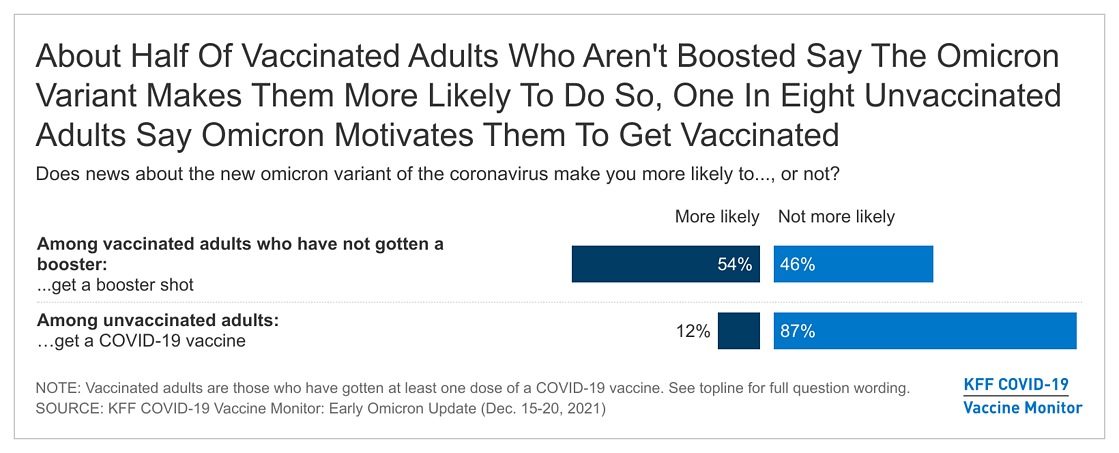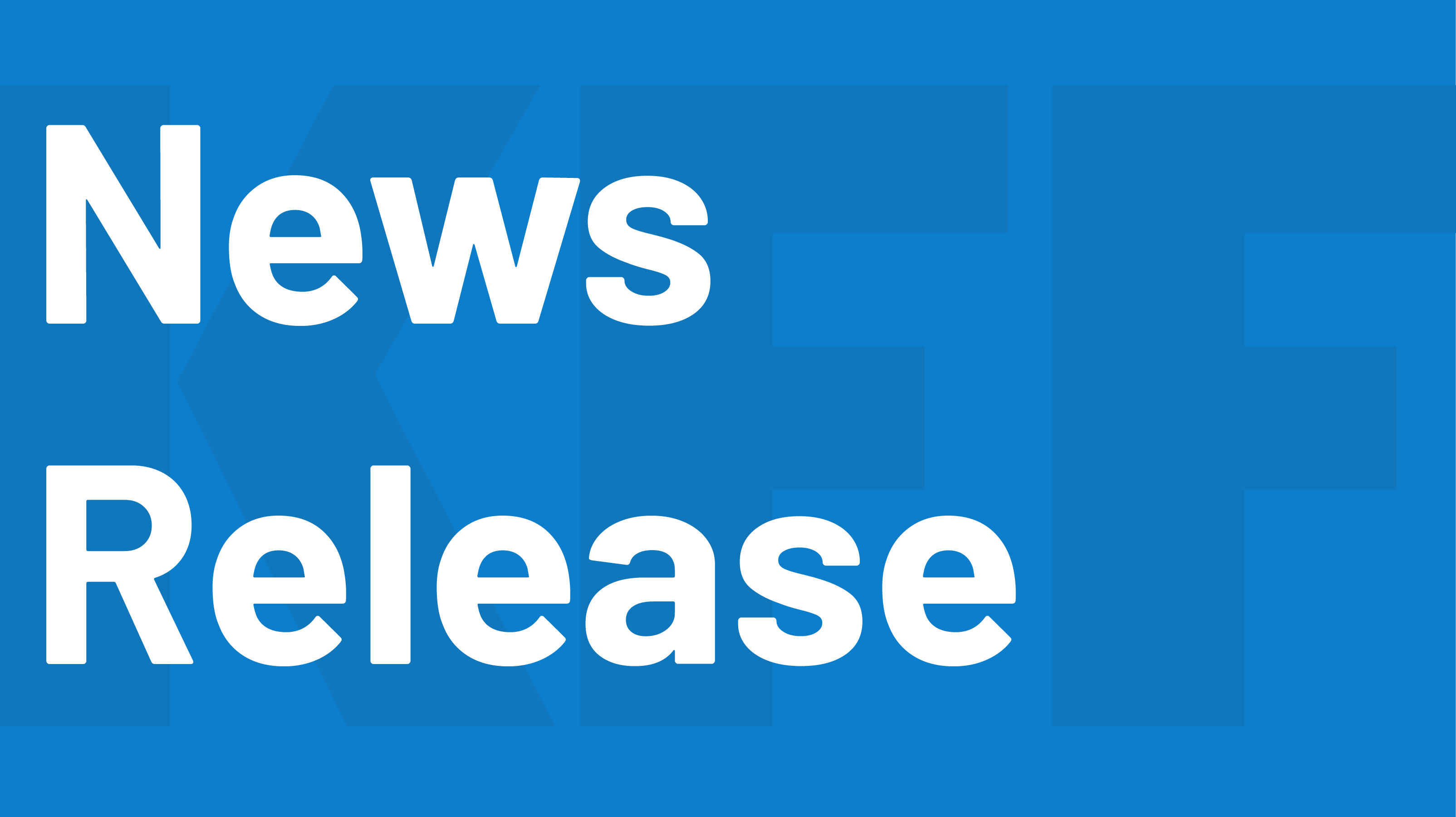The emergence of the omicron COVID-19 variant is encouraging many already vaccinated adults to get a recommended booster shot but is providing only a little motivation for unvaccinated adults to get an initial shot, a new KFF COVID-19 Vaccine Monitor quick response survey finds.
Fielded from Dec. 15-20 to provide an early look at omicron’s potential impact on the public’s vaccination intentions, the survey finds that about half (54%) of vaccinated adults who haven’t gotten a booster dose say news of the omicron variant will make them more likely to do so.
Omicron’s emergence appears to be having a much smaller, but not insignificant, effect on unvaccinated adults. The survey finds that 12% of those who are unvaccinated say it makes them more likely to get an initial shot, but a much larger share (87%) say it does not make them more likely to do.

The public also appears to be increasingly concerned about getting seriously ill amid the omicron wave. The new survey shows that half (50%) of the public is now worried that they will get seriously sick from coronavirus, up from 30% in November’s full Vaccine Monitor report. Vaccinated adults are more likely than unvaccinated ones to worry about personally getting sick from COVID-19 (52% vs. 42%).
While about three-fourths (77%) of the public say they are aware that the Centers for Disease Control and Prevention (CDC) now recommends that all adults get a booster shot, almost one in four say that they are not sure (19%) or incorrectly believe that the CDC does not recommend booster shots for all adults (4%).
Among vaccinated adults, one in five (21%) are either unsure or incorrect about the CDC’s recommendation. About 3 in 10 Hispanic adults (31%), Black adults (28%), and those under age 30 (39%) are also unsure or incorrect.
When people who are unvaccinated were asked, what, if anything, could convince them to get a shot, about half (48%) say that nothing could. Other responses include if there was more research and transparency (12%), if it were required for work or otherwise became mandatory (6%), if they received a large sum of money to get the vaccine (5%), if their doctor recommended it (3%), or if the vaccine prevented 100% of all infections (3%).
Designed and analyzed by public opinion researchers at KFF, the KFF Vaccine Monitor: Early Omicron Update was conducted online and via phone from Dec. 15-20 among a nationally representative sample of 1,065 adults. Interviews were conducted in English and Spanish by phone (80) and online (985). The margin of sampling error is plus or minus 4 percentage points for the full sample. For results based on subgroups, the margin of sampling error may be higher.
The KFF COVID-19 Vaccine Monitor is an ongoing research project tracking the public’s attitudes and experiences with COVID-19 vaccinations. Using a combination of surveys and qualitative research, this project tracks the dynamic nature of public opinion as vaccine development and distribution unfold, including vaccine confidence and hesitancy, trusted messengers and messages, as well as the public’s experiences with vaccination.

